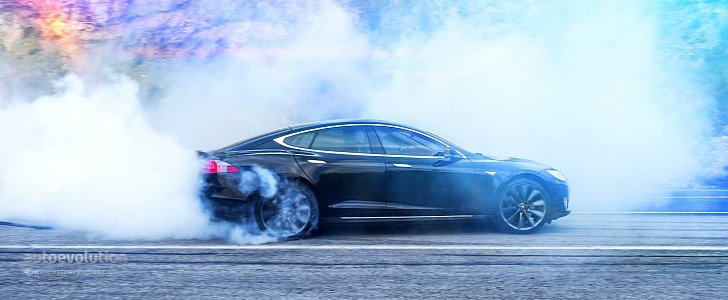For those who don’t know, OPEC stands for the Organization of Petroleum Exporting Countries and is an over half a century old institution made up of 12 members, including Algeria, Angola, Ecuador, the Islamic Republic of Iran, Iraq, Kuwait, Libya, Nigeria, Qatar, Saudi Arabia, the United Arab Emirates, and Venezuela.
If most of the names there are past or present (hopefully not future) war zones, don’t jump to conclusions, it’s obviously just a coincidence. Why would anyone be interested in controlling what still is the most valuable resource in the world?
And why would these 12 countries be interested in admitting that electricity would make for a better, more sustainable energy source than oil and all of its derivatives? I think we all know the answer to that, and with this 2015 World Oil Outlook that OPEC has just released, we get a confirmation of where the organization stands.
Of course, asking OPEC about the future of alternative fuel vehicles is like asking somebody representing the meat industry about veganism: you’ll get the most biased answer possible. And apparently, they’re not even trying to sugarcoat it, saying that by 2040 - that’s a quarter of a century from now - only 6% of the passenger cars will be using non-fossil fuels. That’s a bleak forecast for an industry that seems to be booming. Have you seen Volkswagen’s latest two-minute-long TV commercial about its hybrid and electric models?
“By 2040,” the OPEC report reads, “only 6% of the passenger car stock and 5.3% of commercial vehicles will be running on non-oil fuels. Without a technology breakthrough, battery electric vehicles are not expected to gain significant market share in the foreseeable future. Besides the high purchase price, there are serious challenges in terms of convenience, such as range limitations and poor battery performance during very hot or cold weather conditions. Similarly, anticipated high purchase costs, the lack of refuelling infrastructure, and relatively expensive hydrogen fuel will make fuel cell electric vehicles less likely to become a global breakthrough technology over the forecast period. Natural gas vehicles will be the most attractive option. However, high price premiums and a scarce network of refuelling points in most countries will limit the large-scale adoption of this technology. The overall picture is not too different in the commercial vehicles segment.”
So, they do acknowledge that a significant improvement in battery technology could make their prevision obsolete, but they don’t seem very confident about such a thing happening. In fact, out of the 300+ pages of the document, this paragraph is the only one making a reference to the usage of alternative fuels in transportation. It remains to be seen if this overconfidence will be their undoing and if it will come sooner than 2040 or not.
And why would these 12 countries be interested in admitting that electricity would make for a better, more sustainable energy source than oil and all of its derivatives? I think we all know the answer to that, and with this 2015 World Oil Outlook that OPEC has just released, we get a confirmation of where the organization stands.
Of course, asking OPEC about the future of alternative fuel vehicles is like asking somebody representing the meat industry about veganism: you’ll get the most biased answer possible. And apparently, they’re not even trying to sugarcoat it, saying that by 2040 - that’s a quarter of a century from now - only 6% of the passenger cars will be using non-fossil fuels. That’s a bleak forecast for an industry that seems to be booming. Have you seen Volkswagen’s latest two-minute-long TV commercial about its hybrid and electric models?
“By 2040,” the OPEC report reads, “only 6% of the passenger car stock and 5.3% of commercial vehicles will be running on non-oil fuels. Without a technology breakthrough, battery electric vehicles are not expected to gain significant market share in the foreseeable future. Besides the high purchase price, there are serious challenges in terms of convenience, such as range limitations and poor battery performance during very hot or cold weather conditions. Similarly, anticipated high purchase costs, the lack of refuelling infrastructure, and relatively expensive hydrogen fuel will make fuel cell electric vehicles less likely to become a global breakthrough technology over the forecast period. Natural gas vehicles will be the most attractive option. However, high price premiums and a scarce network of refuelling points in most countries will limit the large-scale adoption of this technology. The overall picture is not too different in the commercial vehicles segment.”
So, they do acknowledge that a significant improvement in battery technology could make their prevision obsolete, but they don’t seem very confident about such a thing happening. In fact, out of the 300+ pages of the document, this paragraph is the only one making a reference to the usage of alternative fuels in transportation. It remains to be seen if this overconfidence will be their undoing and if it will come sooner than 2040 or not.

